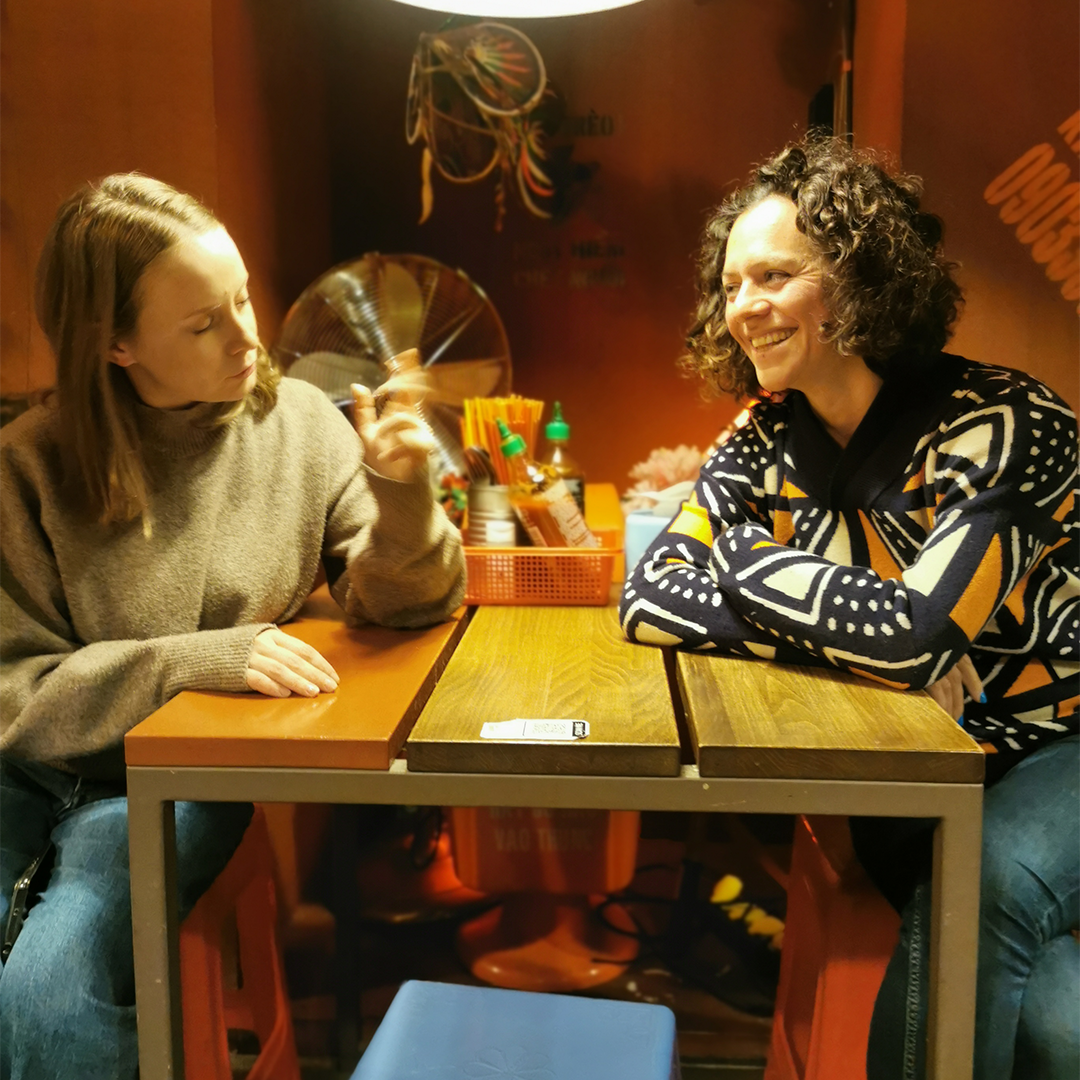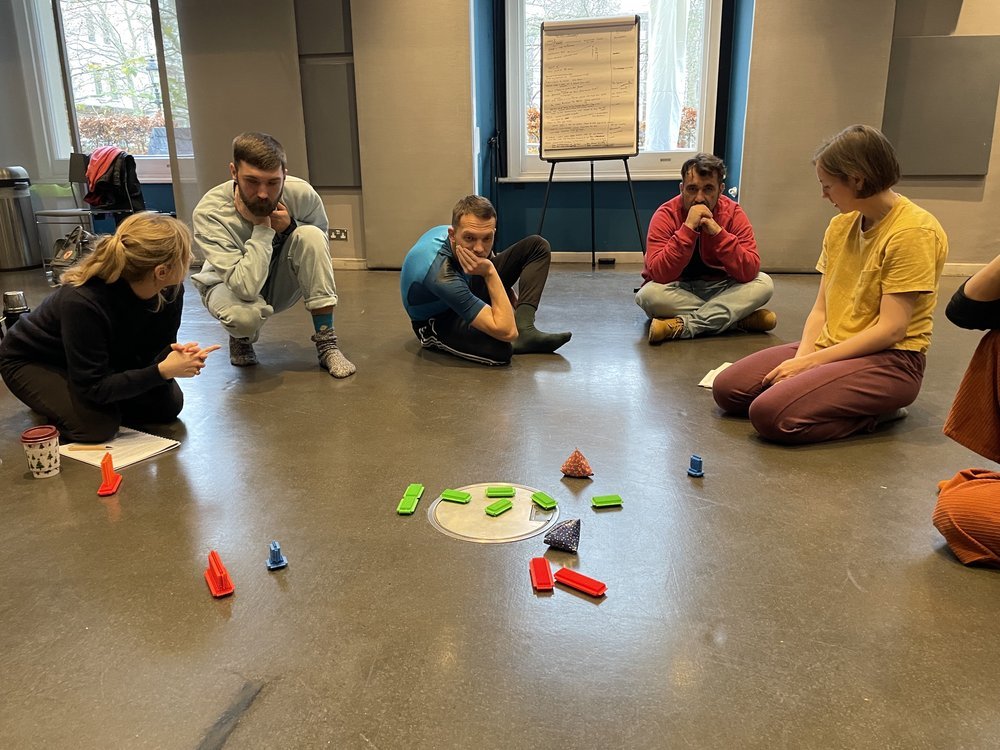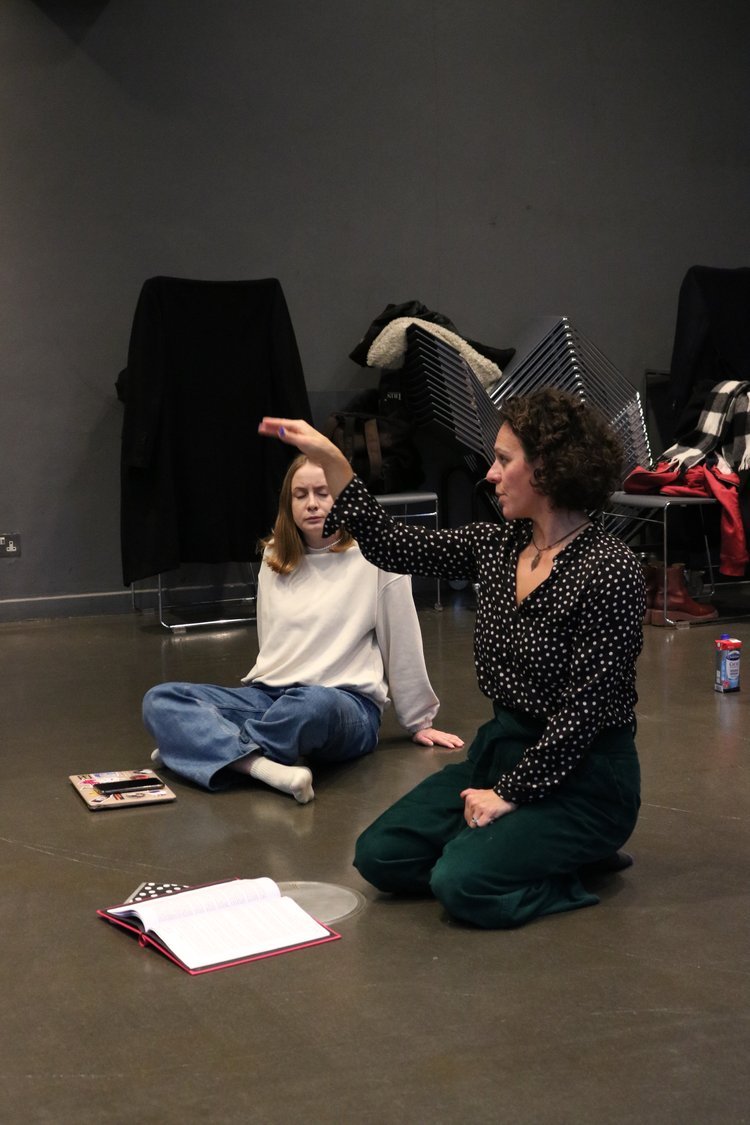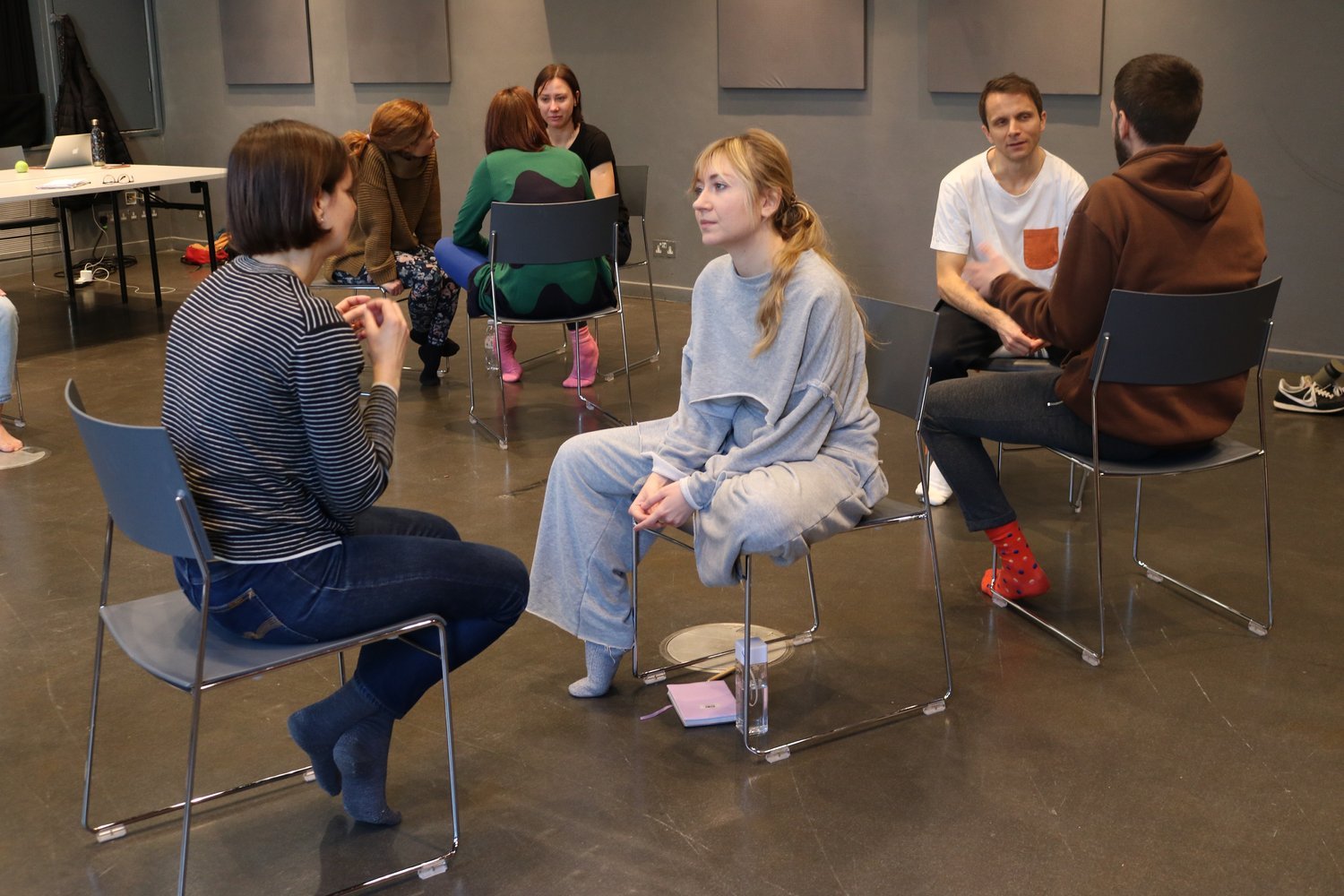The Reckoning: Crafting the Script
We’ve had an industrious few months at Dash with The Reckoning production.
The autumn was spent writing, Anastasiia and I passing a script between us, Berlin - London, occasionally Ukraine - London. It was a beautiful conversation - we formed a relationship as we figured out the relationships in our play. And the dynamics between us have been fascinating to navigate - we’re working across languages, countries, understandings since Nastia’s lived experience as a Ukrainian whose country is under siege is clearly different from my more emotionally distanced one and even theatre languages. The evolution of our friendship is in some ways mirrored in the connection we’re creating for our protagonists - a conversation and a deepening relationship between two individuals brought together through war.
Left: Josephine and Anastasiia during Josephine’s recent stay in Berlin developing the script of The Reckoning
Right: A leftover theatre set at Maxim Gorki Theater that now sits in their garden
In a workshop in Goethe Institute in December, we explored our draft script with 6 brilliant actors - 4 of whom are from Ukraine and have relocated to the UK since the war. I was really keen to see what worked in the text and what didn’t, how it felt to hear and work in Ukrainian, and how we might bring some theatricality and playfulness into the room to lift the words off the page.
Images: Script writing workshop for The Reckoning at Goethe Institute in December 2023
It was a wonderful week - our composer Anton Baibakov was in the room with us conjuring incredibly resonant sound scapes for our world, artist wellbeing practitioner Lou Platt ensured we looked after ourselves whilst handling the sometimes really quite difficult material, and movement director Josie Daxter made sure we played and found ways to tell stories with our bodies which underscored the dialogue.
Anastasiia and I learnt so much about the potential of the play and the direction it needed to travel in.
And last week, I returned to Berlin to look again at the text with Nastia with a more precise eye. We ‘killed a lot of our darlings’ - cutting great swathes of the text and losing quite a few characters from the cast.
The most interesting conversation for me in Berlin last week was ethical - the individuals whose lives we are bringing to the stage are very much real. Their stories are precious and we have been generously gifted with their recordings. We are compelled to tread gently and carefully. And yet simultaneously we are creating a work of theatre - a show that we hope will hold fast to our audiences, bringing a vital human face to a tragedy that is unfolding on the other side of the continent, moving beyond the scrolling ticker of countless nameless tragedies to tell a story of real people whom our audience can care about. And sometimes, to do that, we need to imagine or fictionalise a conversation or a monologue to sit around the verbatim texts we are so privileged to look after. And that presents ethical questions that we’ve spent a great deal of time exploring together. And making peace together with a solution which we feel honours this tension.
It was so crucial to have this conversation face to face, to look each other in the eyes as we pulled apart our handiwork and be sure that we were comfortable with the decisions we made. I'm grateful to Maxim Gorki Theater in Berlin and Goethe Im Exil for enabling this to happen.
We’ve some final finessing to do - remotely again - before I return later in the Spring to work on the sound with Anton, design, projections and lighting.
You can hear more on the project and a selection of the script explored in the rehearsal room in our recent podcast series, The Reckoning. Our podcast is available on all streaming platforms - click below to explore.













Join us round the kitchen table with acclaimed Ukrainian chef Olia Hercules and Dash’s Artistic Director Josephine Burton as they weave together cooking and storytelling in our latest production.